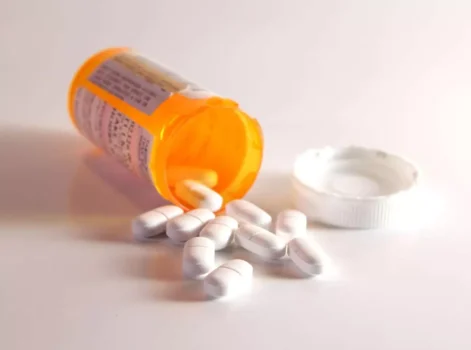19, May 2021
The Mental & Physical Effects of Alcohol & Coping with Addiction

While this may seem like a trend connected to the pandemic, people need to be aware of the short-term and long-term consequences moderate to heavy alcohol use has on their physical and mental health. In these cases, treatment involves gradually tapering off the drug over a set period to reduce withdrawal https://ecosoberhouse.com/article/psychological-dependence-on-alcohol-physiological-addiction-symptoms/ effects. For example, a person with a caffeine dependence who stops drinking coffee may have withdrawal symptoms for a few days but then feel better. With alcohol addiction, or severe alcohol use disorder, a person finds it difficult to stop drinking much of the time, not only in certain situations.

How To Treat Alcohol Dependence
- Further, the age at which deaths from alcoholic liver disease occur has been falling in the UK, which is partly attributable to increasing alcohol consumption in young people (Office for National Statistics, 2003).
- Whilst the government and Royal Colleges’ definitions of harmful drinking and risk levels of alcohol consumption provide useful benchmarks to estimate the prevalence of alcohol-use disorders in the general population and monitor trends over time, they have a number of limitations.
- Treatment staff therefore need to be able to identify and assess physical health consequences of alcohol use, and refer patients to appropriate medical services.
- MTF, YRBS and NSDUH consistently showed that adolescents used alcohol, tobacco, and cannabis earliest and most commonly (Figures 1–3).
Criminality and offending behaviour are often closely related to alcohol misuse in children and adolescents. Liaison with criminal justice services is necessary to ensure that appropriate co-ordination of care and effective communication and information-sharing protocols are in place. As noted earlier, people who are alcohol dependent have higher rates of comorbidity with other psychiatric disorders, particularly depression, anxiety, post-traumatic stress disorder (PTSD), psychosis and drug misuse, than people in the general population. Alcohol can, temporarily at least, reduce the symptoms of anxiety and depression, leading to the theory that alcohol use in this situation is a form of ‘self-medication’. This theory, however, lacks clear experimental support, and the longer-term effects of alcohol worsen these disorders.
Alcohol Dependence, Withdrawal, and Relapse
In more common language and in earlier disease-classification systems this has been referred to as ‘alcoholism’. However, the term ‘alcohol dependence’ is preferred because it is more precise, and more reliably defined and measured using the criteria of ICD–10 (Text Box 1). The term was introduced in ICD–10 and replaced ‘non-dependent use’ as a diagnostic term. The closest equivalent in other diagnostic systems (for example, the Diagnostic and Statistical Manual of Mental Disorders of the American Psychiatric Association [APA, 1994], currently in its fourth edition [DSM–IV]) is ‘alcohol abuse’, which usually includes social consequences. While we understand this is a difficult transition, many people eventually realize they can only maintain control over their alcohol usage if they cut it out entirely.
Substance Use Treatment

Screening and brief intervention delivered by a non-specialist practitioner is a cost-effective approach for hazardous and harmful drinkers (NICE, 2010a). However, for people who are alcohol dependent, brief interventions are less effective and referral to a specialist service is likely physiological dependence on alcohol to be necessary (Moyer et al., 2002). It is important, therefore, that health and social care professionals are able to identify and appropriately refer harmful drinkers who do not respond to brief interventions, and those who are alcohol dependent, to appropriate specialist services.
Neurobiological Effects of Polysubstance Use and Emerging Drug Products
Speak with your doctor if you develop a tolerance to your medication or any other substance. If you are taking a prescription medication, your doctor may change the class of medication, which may affect your body in a different way. If it is not a prescription medication, your doctor may be able to help you reduce your use of the substance with the least side effects.

Adults: prevalence of disorder by substance, age of onset of SUD
- 0
- By admin








